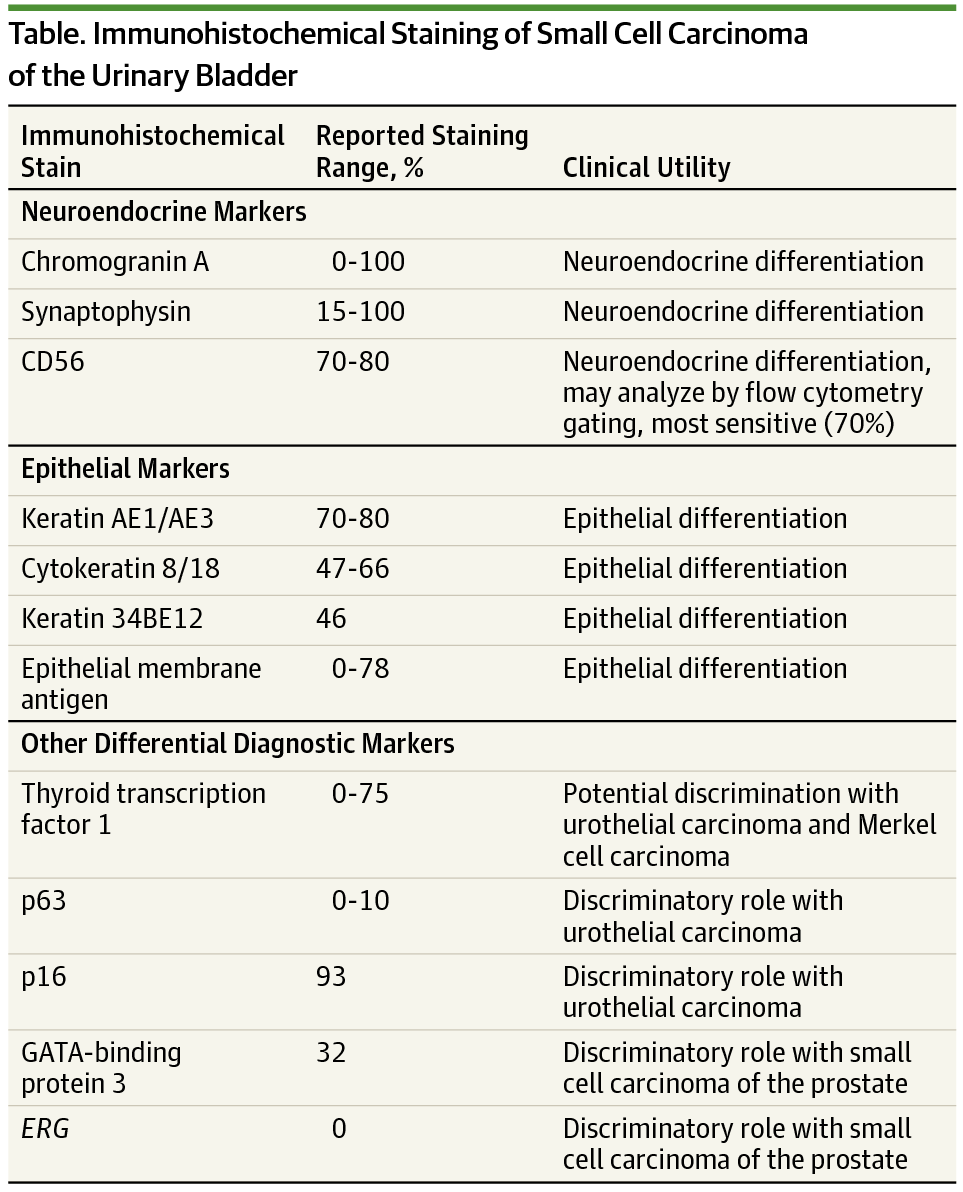2017/11/12
Small Cell Carcinoma of the Urinary Bladder and Implications for Diagnosis, Prognosis, and Treatment
<Abstract>
Importance Small cell carcinoma of the urinary bladder is a rare and aggressive neuroendocrine tumor of the urinary bladder. Although research has been performed since the first case was reported in 1981, most of our understanding of the disease treatments has been extrapolated from small cell carcinoma of the lung. However, current data on patient survival have been stagnant.
Observations With the advent of advanced molecular diagnostic methods, a new potential for understanding the origin and treatment of small cell carcinoma of the urinary bladder has become evident. Similar to published studies of small cell carcinoma of the lung, collaborative efforts and accessible genome-phenome databases have partially elucidated the genomic landscape. With these efforts, additional potential areas of treatment, such as targeting driver mutations, immunotherapy, stem cell modulation, and novel drug candidates, have been identified. Moreover, identification of novel biomarkers and improved radiological methods may complement our understanding of the course of disease relative to diagnosis, staging, prognosis, and response to treatment. Such early discoveries have been facilitated with novel animal-based models.
Conclusions and Relevance The direction of investigation of small cell carcinoma of the urinary bladder using novel methods to understand the genomic landscape for new treatments remains preliminary. However, such studies are maturing and may foster clinical research, with opportunities to enhance the survival and health-related quality of life of individuals with this disease.
<reference>
JAMA Oncol. 2017;3(11):1570-1578. doi:10.1001/jamaoncol.2016.7013






